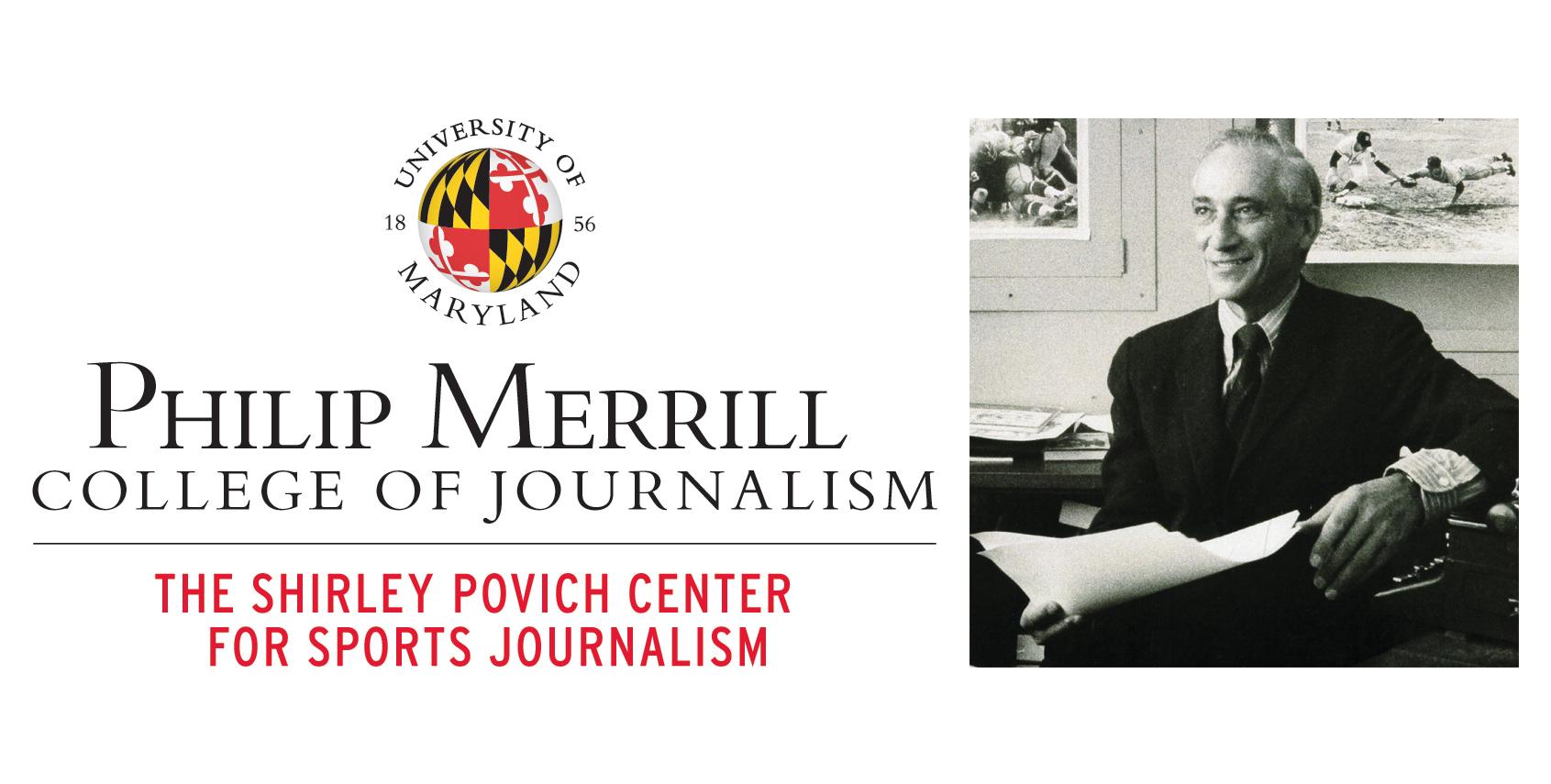
By Rachael Grahame ’17
NBA great LeBron James called then-President Donald Trump “U Bum” on Twitter and went on to help create a voting rights group. Megan Rapinoe, a star on the U.S. women’s soccer team, bluntly said she would not take Trump up on his offer to visit the White House if the team won the 2019 World Cup. (It did, and neither she nor the team attended.)
Americans are divided on whether they support athletes using their platforms in such a way. That’s according to a new poll by The Washington Post and the University of Maryland’s Center for Democracy and Civic Engagement (CDCE) and the Philip Merrill College of Journalism’s Shirley Povich Center for Sports Journalism.
“We know from a long line of research that sports fans see their allegiances as part of their identity. As a result, when sports and political issues intersect fans take the issues seriously,” said Sam Novey, CDCE chief strategist.
Fifty-one percent of Americans approve of professional athletes using their platform to express such social and political views. That is down from 62% who said the same in a 2020 poll.
“The poll tells us that advocacy of social and political causes by pro athletes remains a divisive issue. What some see as an athlete taking a principled stand others may interpret as pushing a personal agenda,” said Mark Hyman, Merrill College’s George Solomon Chair in Sports Journalism and director of the Shirley Povich Center for Sports Journalism. “That won’t deter some athletes from using their voices. But it can—and often does—come at a cost.”
The poll found opinions on this issue varied by political affiliation: Seventy-seven percent of Democrats and 25% of Republicans said athletes should express their views on social and political issues.
Opinions also varied by race: 82% of Black respondents to the Aug. 17-23 poll of 1,584 adults said athletes should use their platform to express social and political views, followed by 67% of Hispanic respondents, and 58% of Asian respondents, but just 40% of white respondents.
“The removal of the color line and segregation from sports has significantly increased the racial diversity of athletes at the professional level. As this diversification has happened, white people are more inclined to view athletes opening up about their political views or championing the franchise as a far step away from the responsibilities of an athlete, which is to shut up and play,” said Chryl Laird, an associate professor of government and politics and CDCE research scholar.
Americans more strongly support athletes’ use of their platform to promote voting rights. Overall, nearly seven in 10 respondents said they strongly or somewhat supported such efforts from athletes. Broken down by race, that sentiment was shared by 86% of Black respondents, 76% of Hispanic respondents, 77% of Asian respondents, and 63% of white respondents.
But when asked whether political leaders should criticize athletes representing the U.S. in international competitions, near-even shares of white (69%), Black (67%), Hispanic (64%) and Asian (61%) respondents said they should never or rarely do so. Overall, 67% of Americans said it was rarely or never appropriate.
Breaking down the answers to the same question by political party revealed wider differences in opinion: Just over three-quarters of Democrats (77%), 58% of Republicans and 66% of independent and unaffiliated respondents said it is never or rarely appropriate for political leaders to criticize U.S. athletes.
When given an example of a political leader criticizing a U.S. athlete—in the poll’s case, Trump blaming Rapinoe for the team losing the 2023 World Cup and the country “going to Hell”—73% of respondents said Trump’s message was inappropriate.
Here, the partisan divide was also large: 94% of Democrats and 79% of independent respondents said Trump’s post was inappropriate compared to 47% of Republicans. A slim 53% majority of Republicans said it was appropriate.
“Any other politician making a statement like this would likely push some potential voters to decide to stay home on Election Day or switch their vote. But Trump has proven to be very resilient,” said Michael Hanmer, CDCE director and government and politics professor. “While it is hard to say if this will cause any damage to his chances, the results suggest it will not help.”
Read The Washington Post’s article about the poll.
